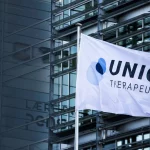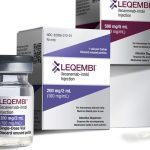Boston Scientific Gets FDA Approval for the AGENT Drug-Coated Balloon

Boston Scientific Corporation has recently secured approval from the U.S. Food and Drug Administration (FDA) for its AGENT™ Drug-Coated Balloon (DCB). This marks a significant milestone as the AGENT DCB becomes the first coronary drug-coated balloon to receive approval in the United States. This innovative device offers a safe and effective alternative for the treatment of coronary in-stent restenosis (ISR) in patients diagnosed with coronary artery disease.
ISR refers to the obstruction or narrowing of a stented vessel due to plaque or scar tissue buildup. Despite advancements in stent technology, ISR remains a challenging issue, accounting for approximately 10 percent of percutaneous coronary interventions in the U.S. The AGENT DCB is designed to address this unmet medical need by providing a dedicated treatment option without the need for additional layers of stenting, radiation, or balloon angioplasty.
The AGENT DCB employs a paclitaxel-coated balloon catheter that delivers a therapeutic dose of drug to the vessel wall, thereby helping to prevent ISR reoccurrence. The FDA approval follows positive results from the multicenter, prospective, randomized controlled AGENT IDE trial. This trial, which enrolled 600 patients across 40 U.S. sites, demonstrated the efficacy and safety of the AGENT DCB compared to uncoated balloon angioplasty.
Key findings from the trial include a statistically significant reduction in target lesion failure (TLF) at 12 months with the AGENT DCB compared to traditional treatments. Additionally, the AGENT DCB showed a significant decrease in cases of clotting within the stent and a notable reduction in the risk of heart attack at the target vessel.
Principal investigator Dr. Robert W. Yeh, section chief of interventional cardiology at the Beth Israel Deaconess Medical Center, highlighted the significance of the AGENT DCB in addressing the challenges associated with ISR treatment. He emphasized that this technology offers physicians a means to reduce the risk of restenosis without resorting to additional metal layers or radiation, particularly for high-risk patients with multi-layer stents or diabetes.
The AGENT DCB has already been available in Europe, parts of Asia Pacific, and Latin America for treating ISR and previously untreated small vessel coronary disease. Boston Scientific plans to launch the device in the U.S. in the near future.
This approval underscores Boston Scientific’s commitment to advancing medical technology and improving patient outcomes across various cardiovascular conditions. For more information on the AGENT DCB, interested parties can visit the Boston Scientific website.





